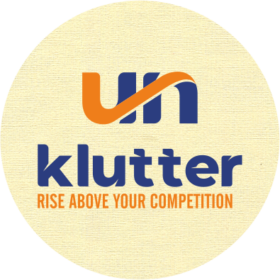Should You Include Hobbies on Your Resume? The Pros and Cons
Introduction: The Debate on Hobbies in Resumes
Hobbies on a resume? Sounds a bit like sneaking dessert into a fitness routine—unexpected, but sometimes worthwhile. The question of whether hobbies deserve a spot on your professional resume is a topic that sparks much debate.
Some hiring managers view them as a window into your personality, while others dismiss them as space-fillers that detract from your qualifications. So, should you include hobbies on your resume? As with most things in life (and job applications), the answer is: it depends.
Let’s break down the pros, cons, and best practices for adding hobbies to your resume. By the end of this article, you’ll know exactly when and how to use this often-overlooked section to your advantage.
The Pros of Listing Hobbies on Your Resume
- Adds a Human Touch
Recruiters are inundated with resumes that can feel robotic—bullet points, jargon, and job titles galore. Including hobbies can add personality, making you more relatable and memorable.
For instance, a recruiter might smile at a mention of your passion for rock climbing, which could set you apart from another candidate with an identical skill set.
- Demonstrates Transferable Skills
Some hobbies highlight traits that align directly with the role you’re applying for:
- Team Sports: Showcase collaboration and leadership.
- Chess or Puzzles: Signal strategic thinking and problem-solving.
- Volunteering: Indicates empathy, commitment, and strong interpersonal skills.
- Provides Conversation Starters
Hobbies can be excellent icebreakers during interviews. A mention of your hobby could lead to an engaging discussion, helping you connect with the interviewer on a personal level.
- Helps Fill Gaps for Entry-Level Candidates
If you’re a fresh graduate or have limited work experience, relevant hobbies can fill gaps in your resume and demonstrate skills you’ve developed outside of work.
The Cons of Including Hobbies in Job Applications
- Risk of Irrelevance
If your hobbies don’t relate to the job or company culture, they may seem out of place. For example, mentioning your passion for birdwatching might not resonate with a hiring manager in tech.
- Wasted Space
A resume is prime real estate, and every word needs to earn its spot. If your hobbies overshadow your qualifications or skills, they could do more harm than good.
- Potential for Misinterpretation
Some hobbies might inadvertently raise questions. For example:
- Listing “video gaming” could be viewed as unproductive by a traditional employer.
- Highlighting “extreme sports” might cause concern about risk-taking tendencies.
- Takes Focus Away from Professional Achievements
When hobbies are overemphasized, they can distract from your core strengths and work history.
How to Decide Based on the Job Role
When it comes to hobbies, context is everything. Here’s a quick checklist to decide if your hobbies belong on your resume:
- Relevance to the Role:
- Are your hobbies aligned with the job description? For instance, a design position might value creative hobbies like painting or photography.
- Company Culture:
- Does the company value individuality and personality? Startups and creative agencies often appreciate unique traits, while corporate environments may prioritize professionalism.
- Resume Length:
- Do you have enough space? Hobbies should never overshadow work experience or education.
- Demonstration of Skills:
- Can your hobby demonstrate a soft skill relevant to the role?
Examples of Effective Hobbies on Resumes
Creative Roles (e.g., Marketing, Design)
- Blogging or Content Creation
- Photography or Videography
- Creative Writing
Technical Roles (e.g., IT, Engineering)
- Coding or App Development
- Robotics Competitions
- Open-Source Projects
Leadership Roles (e.g., Management)
- Mentoring or Coaching
- Public Speaking Clubs
- Volunteering for Community Projects
Customer-Focused Roles (e.g., Sales, HR)
- Event Planning
- Networking Events
- Team Sports
When and How to Use Hobbies Effectively
Including hobbies on your resume can be a powerful tool—if used strategically. They can add personality, demonstrate transferable skills, and even make you memorable. But be careful: relevance and balance are key.
If you’re unsure about how to craft a resume that makes the most of your hobbies and skills, we’re here to help! Contact us on WhatsApp or send us an email for personalized, professional resume writing services. Let’s ensure your resume not only gets noticed but gets results!





uqm8ag
It is really a great and helpful piece of info. I am satisfied that you just shared this helpful information with us. Please stay us informed like this. Thank you for sharing.
http://www.tlovertonet.com/